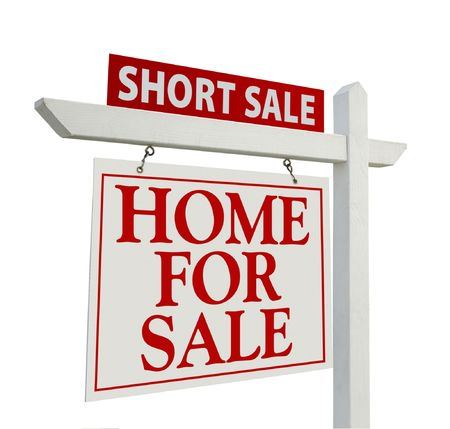Unless you’ve been living under a rock, or unless you pay no attention whatsoever to the local Santa Cruz Real Estate market, you have heard the term Short Sale. If you’d like to familiarize yourself with short sales a bit, I suggest you get my Santa Cruz Foreclosure Report. In a nutshell, though, a short sale is when a homeowner needs to sell their property, but the property is now worth less than the amount that is owed on it.
Short Sales have kind of been marketed as a panacea to Realtors to bolster their flagging businesses. There are short sale gurus out there all over the place selling seminars and CDs and books to Realtors on how to do short sales – I spent a weekend in one, and actually it was pretty interesting. Also, short sales are being marketed to home owners in distress as a way to avoid foreclosure, which can be absolutely disastrous on one’s credit report.
But there is a growing chorus of voices saying that Short Sales are not all they are cracked up to be. Realtors are getting burned out by loss mitigation departments who are uncooperative, buyers are turned off by the uncertainty and delay that is involved with a short sale, and of course, sellers are often totally burned when they cannot complete their short sale and get foreclosed on, which is happening a couple of times per week at least in Watsonville right now.
Here’s an interesting bit I read on short sales on about.com:
[Short Sales Are No Bargain for Buyers – 11 Reasons For Not Buying a Short Sale]
It’s an interesting read, and talks about why you, as a buyer, might want to avoid short sales. One of the touted benefits of short sales is that the buyer can get the property at below-market prices. This article claims that is not true – the lenders will let the property go for less than is owed, but not below market price. From the article:
Lenders aren’t naive or unaware of the value of a home. Lenders will insist on a comparative market analysis, known as a CMA, or broker price opinion, known as a BPO. If a lender believes a better price can be obtained by taking the property back in foreclosure over a short-sale offer, the lender may hold out for a higher price. That price will be close to market value. Lenders accept short sales when the home is worth the short-sale price, which means market value.
From the Realtors that I have talked to who have actually done short sales, there is a difference of opinion on this. Everyone agrees that a lender will get at least one, or perhaps two, BPOs on a short sale property. However, some Realtors say that lenders will discount the BPO amount by a certain percentage – somewhere between 10 and 20%. Other Realtors say that lenders don’t do this, that they always want the full BPO price for the property.
I suspect the discrepancy lies in the lenders that are being dealt with – each is different. What’s more, I suspect that even within a lending organization, the loss mitigators are different, and some may be more hard-ass than others, or more experienced, or less experienced.
The fact is, there really are not that many Realtors around Santa Cruz who have a lot of short sale expertise. How do I know? Well, I look at how many short sales have actually been completed, and it’s not a whole heck of a lot of them. The buyer’s agent basically has little to do in this process – it’s the seller’s agent that has the most to do, by far. The buyer just has to sit there and be patient. I’m in a short sale purchase right now, and we were told it’d be about a month until we got a decision from the bank. We’ve just been sent an addendum asking for an additional month.
I got this addendum a couple of days after I read an interesting blog entry over on ActiveRain:
[From Real Estate Blog – Virginia Short Sales are FAKE. Only 5% Close.]
Most Short Sales are what I call “FAKE listings.” Only 1 in 20 sells. In Arlington only 3 have sold out of 65 attempts….The Theory Behind Short Sales: Banks would be better off to accept a loss now, versus going through the legal expense of a foreclosure, just to end up selling it for less later. Win win, right? Wrong.
Read the blog article. Interesting, right? Well, you might say, that’s Virginia! This is Santa Cruz! Well, that’s true, except that Countrywide, US Bank, HSBC, Deustche Bank, Wells Fargo, Citibank – I think these companies do loans in both Santa Cruz and Virginia.
Anyway, if you ask my opinion, I think it’s OK to try and buy through a short sale process if the property in question is one that you really want to buy. It helps if the seller has already had an offer that maybe didn’t come together, and that they are in contact with the lender’s loss mitigation department and have perhaps worked out an agreement with them already, and you can just walk in, furnish the missing contract, cash, and loan, and be on your way. Other than that, you’re probably much better off finding a nice bank-owned REO property, or (suspend your disbelief here, just for a second) buy a house from a buyer who isn’t totally distressed and facing foreclosure.




